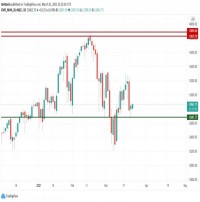|
 Christoph Loslein is a seasoned entrepreneur, executive, and M&A advisor with over three decades of experience. He co-founded, led, and managed IT and consulting companies that experienced significant growth and went public. In 2006, he established Board Advisors AG (https://www.boardadvisors.de/) to provide confidential advisory services to family offices, entrepreneurs, and private equity firms. Board Advisors is a boutique M&A firm that prioritizes transaction certainty and long-term value creation.
Every year in Germany alone, 125,000 companies seek new ownership. Behind each transaction lies a fundamental tension: decades of ethical business practices suddenly confronting the temptation of life-changing wealth. As family offices increasingly participate in this massive wealth transfer, understanding how money corrupts-and how to protect against it-has never been more critical. Having completed over 100 M&A transactions since 1993 and witnessed firsthand the transformation of sellers, buyers, and advisors when eight-figure sums enter the equation, I've developed a framework for understanding corruption's many faces in modern M&A. Family offices face unique vulnerabilities in M&A corruption:
Three Dimensions of M&A Corruption Through my experience, I've identified three critical questions every family office should examine: 1. Traditional Corruption in Due Diligence What forms of corruption and misrepresentation surface during transactions? While systematic under-the-table corruption has diminished significantly in European markets since the early 2000s (when the last OECD countries abolished tax deductibility for bribes in 2003), sophisticated forms of misrepresentation have evolved. Red Flags to Watch:
In technology transactions particularly, the digital trail makes traditional corruption harder to hide. However, I've observed other forms of deception, including the misrepresentation of lower-margin hardware businesses as high-margin software operations-a practice that featured prominently in the HP/Autonomy dispute, where $11 billion in value evaporated post-acquisition. 2. The Corrupting Influence of Sudden Wealth How does anticipated wealth change seller behavior? When founders face their first major liquidity event, behavioral changes are predictable and concerning: Pre-Sale Manipulation: I've witnessed meticulously crafted projections built on fantasy. A 2% improvement in EBITDA margins can mean millions in additional proceeds. The temptation proves overwhelming for some sellers who've never seen such sums. The Sophistication Gap: Most sellers have built successful businesses but have never sold one. This inexperience makes them vulnerable to practices that, while not explicitly illegal, can derail transactions or trigger post-close litigation. Valuation Engineering: Skilled advisors can manipulate DCF assumptions to swing valuations by 30-50%. Professional buyers detect crude attempts, but sophisticated manipulation requires equally sophisticated detection. 3. Wealth as Corruption Protection Can financial independence serve as an ethical shield? Paradoxically, substantial wealth can provide immunity against corruption. I've observed sellers explicitly pursuing liquidity events to enter politics with complete independence-free from what I term "Institutional Corruption," where financial dependence forces individuals to compromise their principles for position or party loyalty. Singapore's model of highly compensated public servants demonstrates this principle at scale: financial security reduces susceptibility to both actual and institutional corruption. The Family Office Due Diligence Framework Based on patterns observed across 100+ transactions, here's a practical framework for family offices: Pre-LOI Investigation
During Due Diligence
Post-Close Protection
Case Studies in Behavioral Transformation Through my career, I've documented how substantial liquidity events affect individuals as well: The Fearful Millionaire: Despite eight-figure bank balances, some individuals remain paralyzed by existential financial fear, making increasingly conservative or paranoid decisions. The Instant Reinvestor: Others immediately redeploy every cent, maintaining minimal liquidity or safety cushions-their risk appetite amplified to sometimes unreasonable levels rather than being satisfied by success and subsequent careful planning. The Identity Crisis: Most struggle with the loss of their CEO/founder identity, making them vulnerable to poor decision-making during the transition period. These patterns suggest that character doesn't change with wealth-it amplifies. Understanding this helps family offices predict post-transaction behavior and structure deals accordingly. The Demographic Imperative The urgency of addressing corruption in M&A will only intensify. Baby Boomers who founded companies in the 1980s and 1990s are creating an unprecedented succession crisis. With 125,000 companies annually seeking new ownership in Germany alone, the volume of transitions creates both opportunity and risk. Artificial intelligence may help detect forged accounts or manipulated projections, but human judgment remains essential for understanding the motivations and pressures that drive corruption. Action Steps for Family Offices
Conclusion: The Price of Integrity Corruption in M&A isn't just about briefcases of cash or offshore accounts-it's about the thousand small compromises that occur when life-changing money is at stake. For family offices, whose wealth often spans generations and whose reputations define their access to opportunities, understanding and preventing corruption isn't just good practice-it's existential. The massive wealth transfer underway as Baby Boomers exit their businesses presents family offices with unprecedented opportunities. But as I've learned through three decades and 100+ transactions, the price of a successful deal is eternal vigilance. Money doesn't just reveal character-it tests it, transforms it, and occasionally corrupts it. The question for every family office isn't whether they'll encounter corruption in M&A-they will. The question is whether they'll recognize it, resist it, and ultimately rise above it. The Family Office M&A Corruption Detection Checklist Essential Questions Every Investment Committee Should Ask: Have we examined cost accounts for unusual advisory or consulting fees? | ||||
|
Horizons: Family Office & Investor Magazine
How Money Can Corrupt: An M&A Advisor's Guide for Family Offices |
|





 RSS
RSS










